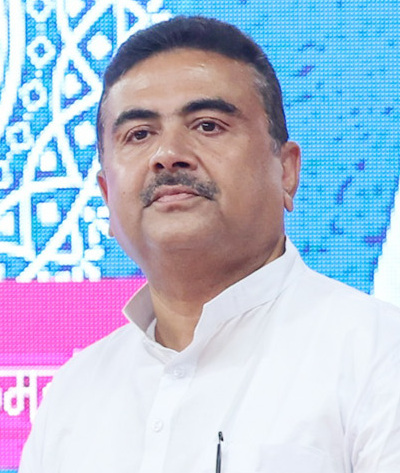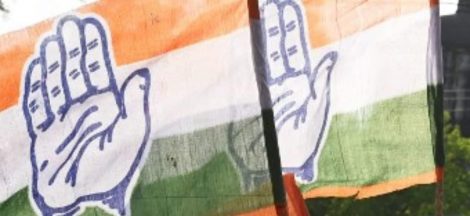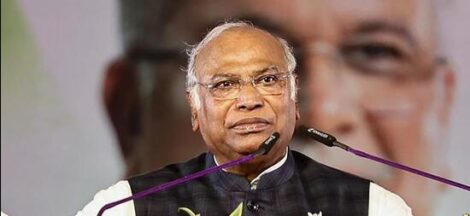Suvendu Adhikari, a prominent leader of the Bharatiya Janata Party , has accused members of the Trinamool Congress of desecrating Hindu idols in Nandigram, a region that has long been a flashpoint for political unrest in West Bengal. The allegations have sparked a wave of controversy, with the BJP leader demanding immediate action from the state authorities.
Adhikari’s statement comes amid growing tensions in Nandigram, a constituency that had once been a focal point in the 2007 land acquisition protests, a struggle that helped propel Mamata Banerjee into the political spotlight. The BJP’s accusations are being framed as part of the ongoing political battle in the region, with the TMC and the BJP vying for influence in West Bengal’s politically charged atmosphere.
The BJP leader, in a social media post, alleged that statues of Hindu deities were vandalised in a temple located in the heart of Nandigram, a claim that has raised concerns about the safety of religious symbols. Adhikari’s remarks have not only ignited protests but have also brought attention to the communal sensitivities in the state.
The accusations have been vehemently denied by TMC spokespersons, who have dismissed them as an attempt at polarisation ahead of local elections. TMC representatives argue that the BJP is using the situation to stoke religious tensions for political gain. According to their version of events, the alleged desecration was the work of unknown miscreants with no political affiliation, an incident that they claim has been blown out of proportion by the BJP.
Political observers have noted that Nandigram is particularly sensitive given its history. It was in this area that the TMC leader Mamata Banerjee led the successful movement against the Communist Party of India , which culminated in the ousting of the Left Front government in 2011. The BJP’s focus on the alleged desecration highlights the continuing friction between the two parties in the run-up to the upcoming elections.
For the BJP, Adhikari’s accusations tap into a wider narrative that is central to the party’s political messaging: defending Hindu sentiments in regions where they feel marginalized. The BJP has long sought to consolidate its hold over West Bengal, a state that has been a bastion of TMC influence since Banerjee’s rise to power. By highlighting issues such as alleged desecration, the BJP aims to energize its base among the state’s Hindu voters.
TMC, on the other hand, remains a dominant force in the state, with a robust grassroots network and strong political machinery. Critics of the BJP argue that the party is deliberately provoking communal divisions to destabilize the state’s political equilibrium. TMC’s leaders have called the idol desecration claims a “calculated move” to divert attention from the real issues affecting the public, such as unemployment, inflation, and the ongoing challenges of managing the COVID-19 pandemic.
The police have yet to make any official statements regarding the incident, although investigations are reportedly underway. Sources in the state law enforcement suggest that they are carefully reviewing all available evidence to determine whether there is any substance to the allegations made by Adhikari. The authorities have promised a thorough investigation, though some local residents have expressed frustration, saying that the state government is reluctant to address religious concerns in the face of rising tensions.
The claims have attracted reactions from across the political spectrum, with analysts pointing out that such incidents may become more frequent as the electoral stakes in West Bengal grow higher. As the BJP continues to push its narrative of safeguarding Hindu interests, the TMC is also reinforcing its narrative of secularism, positioning itself as the protector of minority rights in the state.
The situation in Nandigram has highlighted the growing role of identity politics in West Bengal, with both the BJP and TMC attempting to position themselves as the defenders of their respective communities. The allegations of idol desecration serve as a potent symbol of the political and religious polarisation that has gripped the state in recent years.
Though the claims of desecration have yet to be substantiated by official evidence, the political fallout is undeniable. Localised protests have broken out in different parts of the state, with BJP supporters rallying behind Adhikari’s claims, while TMC supporters continue to denounce the accusations. In many ways, the incident has provided a focal point for both parties to galvanise their supporters, even if the facts remain unclear.
The unfolding drama in Nandigram also sheds light on the challenges that the ruling TMC faces as it tries to maintain its hold on West Bengal. The party has already had to deal with defections, internal dissent, and the rising influence of the BJP, particularly in rural and semi-urban areas. These allegations of religious polarisation will likely only add to the pressure on TMC as it tries to manage its political narrative and maintain its political dominance.




 Trump Plans Sweeping Visa Restrictions Affecting 41 Nations
Trump Plans Sweeping Visa Restrictions Affecting 41 Nations 